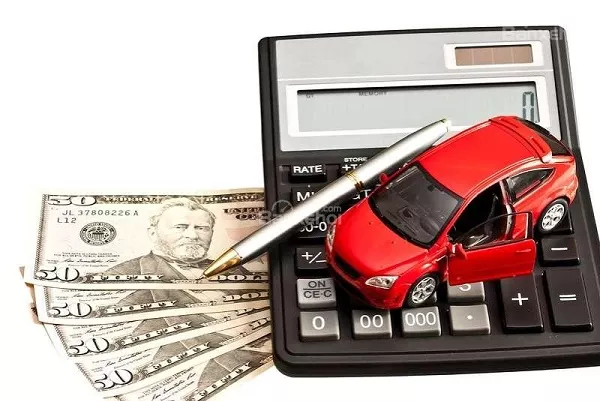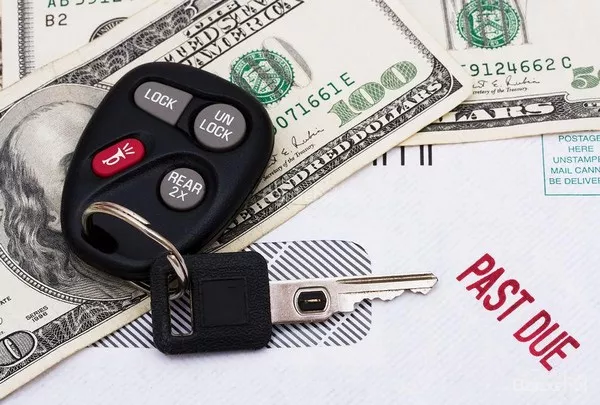Whether buying or selling a car, there are certainly a lot of scammers ready to cheat you. So, prepare yourself for common frauds by reading through these popular scams and tips to avoid.
1. Car cloning
This is the most popular scam from organized criminal groups. Stealing the original car, then they "transform" it to resemble a legitimate car on the market. The VIN (Vehicle Identification Number) of the car can be changed as well, and in some cases, even the V5 engine could be cloned to make the car look real. Therefore, be careful with high-specification vehicles whose price is rather lower than usual. Try to meet the seller and exchange face to face, tracking the address printed on the V5 engine if possible.
2. Low price
Many people are willing to pay cash when buying a car. No surprise, however, there should be a great deal of caution with online companies that offer to pay a much lower price than usual pricing if both parties come to an agreement. Typically, a pretended engineer will look at the car, then find a defect (though sometimes it wasn't there in the first place) to lower the original value. They try to convince you that your car’s quality is lower than you expect and force you to agree with their price. Knowing that you will lose money but you need to sell your car, so usually you will just give a nod. This situation is not illegal at all, however, be careful not to fall into that trap easily. Inspect any mark on your car carefully so that you will know which one is made up.

Unusual low price may signal a potential scam
3. Failed finance deal
This scam happens like this: you are looking for a car to buy; after seeing, testing and considering... you agree to buy a car which suits your financial ability. Everything has gone perfectly until a few weeks later, you receive a call from the seller. He announced that your financial deal failed because you had bad debts, then you are forced to pay more. This plan usually aims at those who do not know their transaction history. This term is often printed in small fonts that make signers less aware of what's going on.
4. Be careful with the agency
There is a general tendency for dealers who advertise their vehicles on auction sites. In fact, these dealers do not have any relationship with the actual car salesman, but only copy seller's ads.
When buyer transfers money to the agent, the money will immediately "evaporate" and buyers will hear no more information from the "agent" any more. Never believe in people claiming to represent somebody to sell a car but make sure that the dealer would be the real seller.
5. Dealer preparation fee
This is not illegal though, you still need to be careful. When buying a new car, it is important to check the small prints in the contract to see if the seller pays the buyer an additional preparation fee. This fee is paid to the seller because the preparation of the vehicle is chosen by the buyer and this detail is printed in the lower right corner of the invoice usually. Therefore, buyers are often faced with the situation that the seller asks for a large amount of money even after a few hours of signing contract.

Be careful of extra charged fee!
6. International scammers
Buyers find out an incredibly cheap car on a car selling website and contact the seller later. Immediately, the seller sends an email to explain that the car is currently in a different place and the reason they cannot keep the car is because of credit tightening. The seller may ask buyer to transfer money through a "reputable" website he provides. But the problem is the website is the scam site itself. Normally, these sellers will not provide a direct contact phone number but give you just an email to keep in touch.
7. Low credit rating/high APR
This problem partly is because you do not know clearly about your own credit rating. The seller simply agrees to a financial agreement with a very high percentage per year and explains to you why you are in bad debt. Understanding your transaction history and then pretend as they are selling to a low credibility buyer is the trick of this scam.
>>> Related posts:
8. Compulsory insurance
Although insurance is always a smart option, but this is not compulsory at all. Never allow a transaction partner to ask you to buy the insurance. This depends on the buyer who has the right to choose which type of insurance that he feels suitable. Whether the buyer agrees to buy insurance or not, it does not matter how their credit score or creditworthiness would be.
9. Bill addition
Be wary of the dealers that offer a car for sale in installment plan. The purpose of doing this is to extend the payment period while the buyer have to pay back bank interest every month. At last, the final cost would be "priced up” against the original price! Although this is not illegal, it is best for every buyer to finish all the costs even when it might take a large sum of money.
>>> Get more tips on Philkotse.com at: Car buying & selling tips
Recent posts
- Important Facts About Buying a Car Online in the Philippines to Avoid Being Scammed Apr 20, 2019
- 5 Tips & tricks to avoid scam car buyers in the Philippines Aug 09, 2022
- 5 common car insurance scams and how to avoid them Aug 16, 2022
- [Scam Buyer Alert] Protecting Yourself from Potential Fraud Car Buyers in the Philippines Oct 19, 2020
- What to do when being victimized on online car scams? Aug 24, 2017











